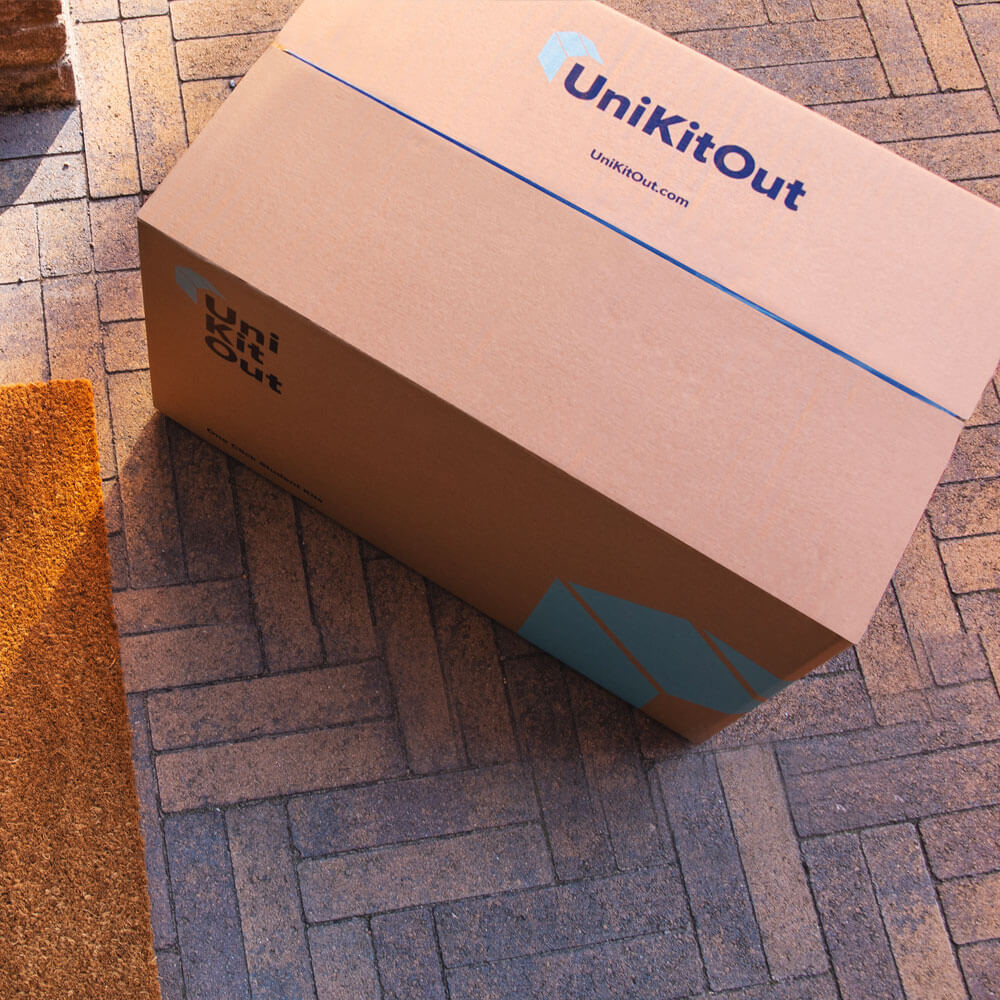Studying in a University abroad is not just about an international professional degree, it sets the foundation for both personal and professional growth. Having to shoulder major responsibilities in an early stage helps you establish an identity with an open outlook towards life. Sharing classrooms and student accommodation with international students offers a great opportunity to learn the language and culture across borders.

The hype around going international often leaves us nervous and confused. So, here are some tips that may come in handy while moving abroad.
1. Book your flight and student accommodation in advance
Your visa is your license to go to the land of your dreams; what you need next is a way to get there. Once you have the visa, book your flight without further delay. Check regularly for the travel restrictions in your host country. Check the flight status and make sure you reach the airport well on time.

Once travel dates are confirmed, start looking for a place to stay. Do extensive research and choose from the options available for student housing near University. Securing student accommodation is as important as getting an admission letter. Always book through trusted accommodation providers and get it confirmed a few months prior to your flight. Major universities like the University of Oxford and the University of Glasgow have social media pages for student hostels near University. Keep an eye on the relevant pages and websites, and stay away from any fraudsters.
2. Make a checklist and pack smart
As you are uprooting yourself into a whole new setting, your parents want you to take the home with you. To save yourself from the hassle, avoid last-minute packing and make a list of essential things you need to carry.
- Passport and a valid visa
- Proof of identity
- Academic transcripts and other certificates
- Bank statements and tax documents
- Medical certificates
- Language test certificate (if needed)
- Electronic essentials
- Foreign currency
- Regular medicines with prescriptions
- Clothes and footwear

Carry all the important documents in your handbag and save digital copies for backup. Remember you are going alone and have to move around with the bags. Pack as lightly as you can and do not carry things that are available at the destination.
With everything taking up the digital space, a dead battery is the last thing you want. As plugs require unique sockets in different places, carry adapters and a phone that works across borders.
Check with your flight provider for the amount and types of goods you can carry. If you are sensitive to climate changes, carry basic medicines along with the prescriptions. Take some ready-to-cook packages with you for the first few days. Have a clear idea of the climate and lifestyle of the place to decide on clothing and shoes. Lock your bags and fly safely.
3. Plan your budget and stick to it
Studying abroad can get heavy on the pocket if you do not have a budget in place. But if you start saving early on, you do not have to go broke. Apply for scholarships or educational loans that can cover your tuition fees. Have a rough estimate of the costs of living and currency exchange rates.

Open a bank account immediately and track all your expenses. Learn to distinguish between ‘needs’ and ‘wants’. Be clear of your non-negotiable expenditures: rent, tuition fee, grocery, commutes, utilities, study materials, recreation, medical care, meals, internet and phone bills. Have a separate budget for emergencies.
If you act smart, you can save on a few bucks: share student accommodation, shop during sales, use second hand or digital books, buy from thrift stores, use your student status to get discounts on museums, bookstores, commute, and restaurants.
Bring out your inner master chef and avoid the “dining out routine”. Batch cook over the weekend and reheat as and when needed. Most of the countries allow students to work for a definite number of hours. Having a part-time job helps you earn money, enhance your social life, learn the local language and explore the place more.
4. Be aware of administrative tasks
As you set off on an exciting journey, many questions well up in your mind about the tasks to complete and people to meet. Have a clear idea of what you must do at arrival.
Is anyone picking you up from the airport—a friend, a relative or someone from the University? If not, be clear of the means of transport, timings of service and mode of payment to get to your place of stay.
As soon as you land, the first instinct would be to call your parents. So, do that straight away since they would also be waiting for it. Know how to contact a University official in case of emergencies.

Once you reach the accommodation safe, meet the landlord and clear any doubts you might have. In the current situation, you must stay in quarantine and pass the Covid test before getting to the tasks at hand.
There will be people to meet, forms to fill, and places to go. Keep track of all the appointments with the municipality, international service desk, university officials and landlord. Carry original documents with copies and passport-sized photos to produce at demand. Once you receive a University student card and a residence permit, you can enjoy your fancy international life to the fullest.
5. Make a home for yourself
Even if you check off the whole list of tasks, it will take time to find your comfort in a foreign land. Expect a few emotional breakdowns as you make your peace with the adulting phase. Prepare yourself for the hurdles on the way and have some people to turn to when you need it. Stay close to the loved ones via phone and the internet as you make a home for yourself.

Research on the culture of the place and city life in general. Engage actively in activities and build meaningful bonds. Hang out with different groups to diversify your experience. Allow yourself to feel homesick and exhausted, and be kind to yourself.
Amidst the hype of an international lifestyle, do not forget the ‘study’ part. Make use of the campus resources, have fruitful discussions with your peers and focus on paving the path towards a rewarding career.
Be open to learning the local culture and language. Interact with people and befriend some locals since they open doorways to a rich exposure of the city. As days progress, you will find a space you can call home.
How can Amberstudent help you?
We at AmberStudent are devoted to giving you the best experience and option for student accommodation worldwide because we apprehend its value. We have upgraded ourselves continuously with the COVID policies and would be more than eager to assist you in those.































